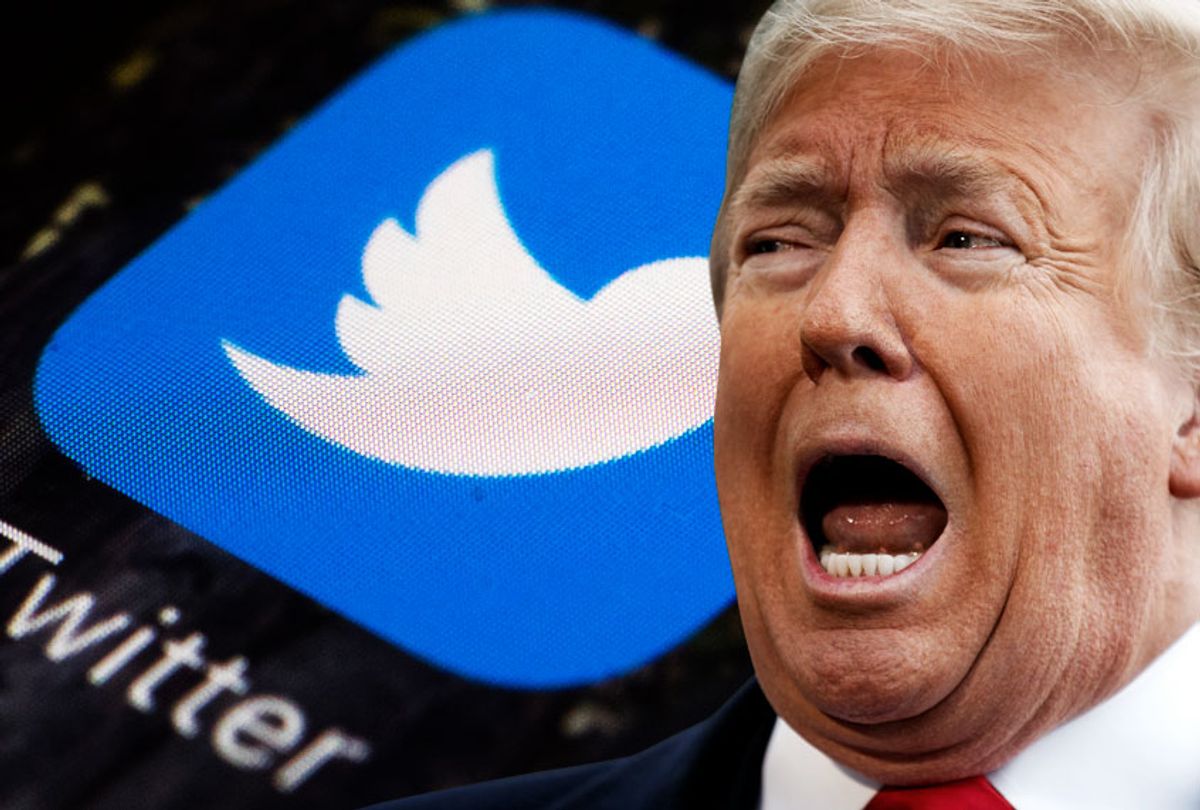President Trump briefly deleted a series of tweets bragging about his administration’s new tariffs on $200 billion worth of Chinese goods and threatening further increases after they contributed to a stock market slide Friday.
On Friday, the Trump administration raised tariffs on $200 billion worth of Chinese exports from 10 percent to 25 percent.
Trump has repeatedly used the tariffs as leverage to exact concessions from China as his administration negotiated a new trade deal, but all the new round of tariffs appears to have done is cause China to threaten retaliation against the United States.
After using the latest tariff threat in a failed attempt to get a deal done by the Friday deadline, Trump kicked off his morning on Twitter by writing that there was “absolutely no need to rush” a trade deal, adding that talks “continue in a congenial matter.”
Trump said that the “process has begun” to place more 25 percent tariffs on another $325 billion worth of goods, insisting that the tariffs “will bring in FAR MORE wealth to our country” than the trade deal he has tried for so long to complete. He claimed the tariffs will be used to buy "agricultural products from our Great Farmers, in larger amounts than China ever did, and ship it to poor & starving countries in the form of humanitarian assistance."
As multiple studies have shown, American consumers are paying 100 percent of the cost of the tariffs through increased prices. Trump’s taxpayer-funded bailout of farmers devastated by retaliatory tariffs have done little to stop the pain.
Trump began the tweet storm at 6:53 a.m. By 6:54, S&P 500 futures began to plummet, CNBC reported.
Futures continued to slide before stabilizing when Trump briefly deleted the entire series of tweets. He then reposted the tweets anyway.
The Dow Jones Industrial Average, S&P 500 and Nasdaq Composite Index all fell sharply on Friday. Though the markets climbed a bit before closing, the Dow is down more than 900 points this week after Trump first issued his threat to impose the new tariffs. The S&P 500 is down more than 3 percent.
On the other hand, two key Chinese markets rose by 3.1 percent and 4 percent Friday, respectively, the Washington Post reported.
CNBC noted that the markets could drop even further if the U.S. and China remain at an impasse on the trade deal. Investors hope the deal will be completed before the products under the new tariffs reach U.S. shores. Treasury Secretary Steven Mnuchin said Friday that talks for the day had ended with no agreement, the Post reported.
The new tariffs will mostly affect business equipment as well as about $40 billion in consumer products like air conditioners, furniture and clothes.
Along with higher prices for American businesses and consumers from the increased cost of Chinese products, farmers are also bracing for more retaliatory tariffs, the Post reported. China has already stopped most imports of U.S. soybeans, which has caused many farms to go bankrupt or put them on the brink of bankruptcy.
Trump's claim that he would somehow use tariff revenues to buy products from farmers to ship to “poor & starving countries” appears to be another of the president's fabrications with no basis in reality. The Post notes that it's unclear how this could happen, whether it would even be legal or which farmers would benefit from this entirely hypothetical idea.
The Post’s Catherine Rampell quipped that the policy essentially kills U.S. farm exports to China so that the U.S. can instead “borrow from China to pay soybean farms to not sell soybeans to China.”
After insisting that trade wars are “good” and “easy to win,” the president’s trade policies have sent the stock market into a tailspin, are sending farmers into bankruptcy, and are raising taxes on American consumers by billions of dollars. Meanwhile, no trade deal is in sight.



Shares